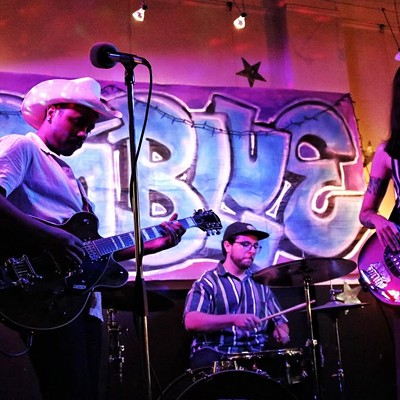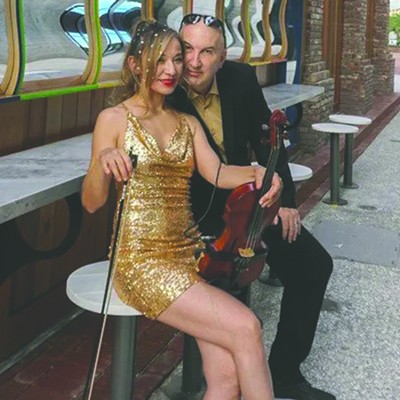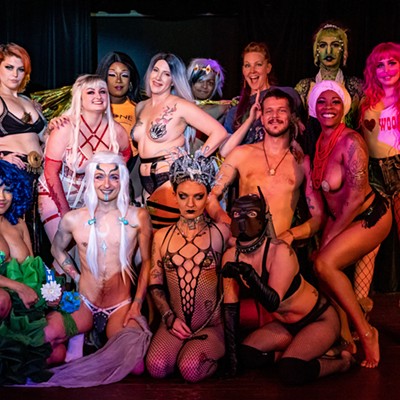Ludwig van Beethoven was totally deaf - and, by most accounts, quite mad - when he composed his 9th Symphony (Symphony No. 9 in D minor, Op. 25 "Choral") in the early 1820s.
It is, however, considered the great composer's crowning achievement, and that's why the Savannah Philharmonic Orchestra has chosen the 9th for its spring concert.
The symphony's final movement, commonly known as "Ode to Joy," will add the Philharmonic Chorus to the already potent mix.
The first half of the concert will be taken up by Beethoven's 1st Symphony, a relatively short (30 minutes) piece compared to the 9th, which has a 246-page orchestral and choral score.
Conductor Peter Shannon has been studying that score for more than two months. He's still discovering new and wondrous things in there.
"Beethoven said ‘I did, in one piece, what I should have done in 20,'" Shannon enthuses. "He didn't write it, like many composers did, as a dedication to some baron, or some lord, or some prince - it was basically just something that he had to write, almost a cathartic way of getting rid of something in him.
"And when you study the 9th Symphony, you realize it's odder than anything he'd composed before. Although you can very clearly tell it's Beethoven, it's like going into your house and finding that somebody's moved all the light switches. You know where they should be, but they're not there."
Beethoven himself conducted the first performance of the 9th Symphony, in Vienna in 1824, less than three years before his death. His use of a full chorus on "Ode to Joy" (adapted from an 18th Century poem by Friedrich Schiller) was unheard of at the time, and only added to the mysterious complexity of the piece.
"That doesn't mean that it's difficult for the listener," Shannon says. "It's very, very beautiful. Sometimes it takes you down a secret passage, you don't know where this has come from, where this motif begins, where that melody comes from, he just goes off on a tangent.
"The honest answer is, it just came out of nowhere. For the listener, it's like losing yourself in the labyrinth."
Wrote French composer Hector Berlioz (1803-1869) on Beethoven's final masterwork: "Some critics regard it as a monstrous insanity. Others can see it as the fading glimmers of a dying genius. The majority of artistically-minded people regard it as an extraordinary conception. The sum of its parts nevertheless remain unexplained or without apparent purpose."
Berlioz finished his observation thusly: "Be that as it may, when Beethoven had finished his work and could contemplate the majestic dimensions of the monument he had just built, he must have said to himself: ‘Death may come now, but my task is accomplished.'"
At 8 p.m. Saturday, April 17. Lucas Theatre for the Arts, 32 Abercorn St. Tickets $15-$100 at www.thesavphilharmonic.org.
SOL DRIVEN TRAIN
I never was what you'd call a Deadhead, but one of the things I liked best about the Grateful Dead - at least in the early days- was their respect of harmony vocals. Amid all the jamming, riffing and noodling around, they knew how to sing together. I get a similar feeling from Charleston's Sol Driven Train, which is a kind of genre-jumping rock band (like the Dead), but with horns, and a really refined sense of vocalizing. They're refined musicians who can make it sound jam-band relaxed. They write really good songs, too, and feature top-drawer guitar playing - and from what I've heard their shows are lengthy and loads of fun. Listen & learn: www.soldriventrain.com.
At 9 p.m. Friday, April 16, Live Wire Music Hall, 307 W. River St. $10.
THE LADYFACE PLAYERS
Five Savannah friends, one impromptu evening. "Girls Up Front: An Evening With the Ladyface Players" is a one-time collaboration consisting of original music, spoken-word poetry and storytelling. "We wanted to do this because it's fun, and because we all know each other," says singer/guitarist Jimmi Pancakes (that's her stage name, and I told her I'd use it). "We've performed separately, full sets, and we just wanted to do something together this time. It'll be round-robin; nobody's going to be the main act. We're going to share the stage and follow each other." The others are Soup and Soda (Laura Leonard and Annie Barclay), Jess Shaw and Ruchell Frazier. Listen & learn: www.myspace.com/jimmipancakes.
At 8 p.m. Friday, April 16 at the Sentient Bean, 13 E. Park Ave.
STEVE GILLETTE & CINDY MANGSEN
From snowy Vermont comes this husband and wife duo, a hardworking, folksinging pair who've been making the rounds of folk gatherings and acoustic-fests for more than two decades. He's a guitarist and songwriter who's been covered by the likes of Garth Brooks, Linda Ronstadt and John Denver, and he's written a book - Songwriting and the Creative Process - that's internationally known. She's a fantastic harmony singer and plays guitar, banjo, dulcimer and concertina. Their sets are a marriage of traditional and new songs. Listen & learn: www.compassrosemusic.com.
At 7:30 p.m. Friday, April 16 at First Presbyterian Church, 520 E. Washington Ave. $8 adults, $5 students and children. A presentation of the Savannah Folk Music Society.






























